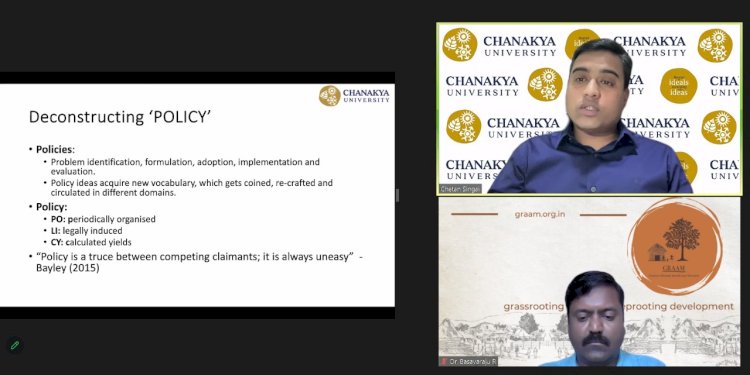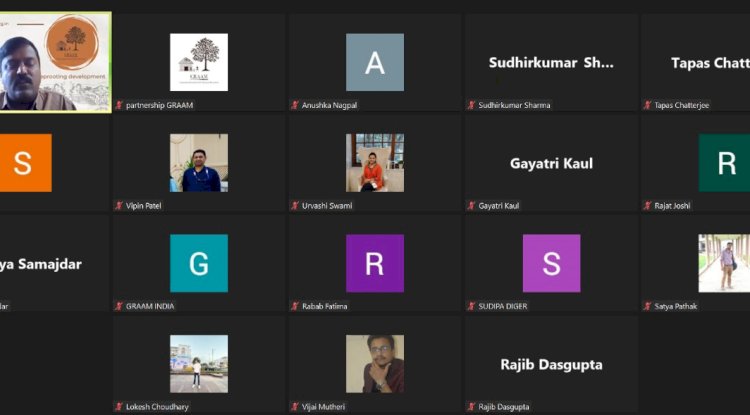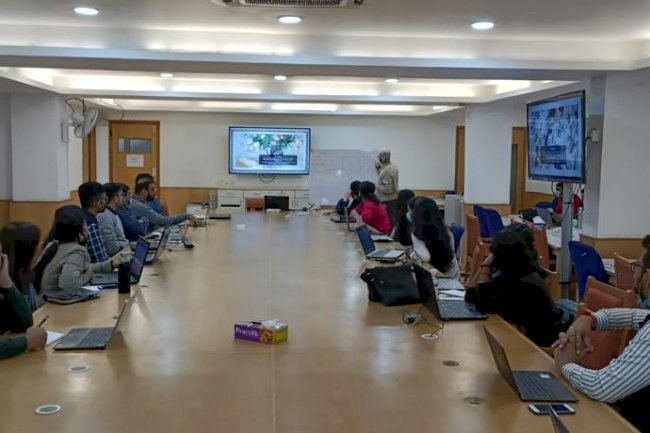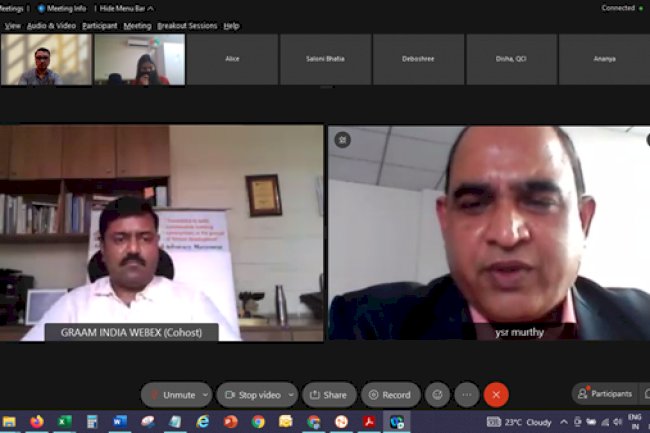'Introduction to Public Policy': the Future of Informed Governance
An Insightful Journey into the Future of Informed Governance

Grassroots Research and Advocacy Movement (GRAAM) recently marked the successful completion of its "Introduction to Public Policy" course held on the 7th and 8th of October. The event brought together educators, policymakers, and stakeholders to discuss the groundbreaking developments in the education sector.
The program commenced with Mr. Rajib Das, a dynamic presence in the field, providing a deep dive into the history and evolution of policy. The session, titled "Redefining and Revisiting Education: Unpacking the National Education Policy," was marked by enlightening conversations on the principles and processes that underpin the NEP.
Dr. Chetan Singhai, Dean of the School of Public Policy, initiated the discourse by deconstructing the intricacies of policy formulation, highlighting the necessity of evidence-based actions in the education sector. He stressed the importance of nurturing individuals to achieve their full potential and fostering adaptability, sustainability in a knowledge-based economy.
In a diverse nation like India, policy-making is no small feat, with Dr. Singhai pointing out the significance of considering past experiences, engaging in consultations, and studying global best practices. He also shared insights from his extensive research, citing examples like the Bhutanese education policy linking learning to happiness. He highlighted key aspects of the NEP, such as empowering governance, positive completion, internationalization at home, and the National Higher Education Qualifications Framework (NHEQF), which offers multiple entry and exit options. He also emphasized the importance of faculty development, multidisciplinary studies, and flexibility in higher education.

The IPP course featured a comprehensive array of sessions that covered a multitude of facets in the realm of public policy. Participants were introduced to the fundamental concepts and frameworks that underpin the intricate tapestry of public policy, setting the stage for a rigorous exploration.
Dr. Ananya Samajdar, Deputy Director- Research at GRAAM, led sessions delving into the intricacies of the policy cycle. Her presentations covered critical aspects, from agenda setting to the intricate nuances of policy implementation, equipping participants with the insights required to navigate the complex and often challenging landscape of policy formulation and execution.
In a pivotal session, Dr. Basavaraju R., the Executive Director of GRAAM, emphasized the need for an evidence-based approach in policy-making. He called for a shift from eminence-based decisions to evidence-based ones, a move that is critical for informed and impactful policy analysis. Dr. Basavaraju R. provided valuable guidance on how to integrate evidence into the decision-making process for policy analysis and also shared invaluable insights on the art of crafting policy briefs.
The Introduction to Public Policy course showcased GRAAM's commitment to equipping learners with essential tools for navigating the complex terrain of public policy, enabling them to make informed, impactful contributions to this dynamic field.
What's Your Reaction?





















